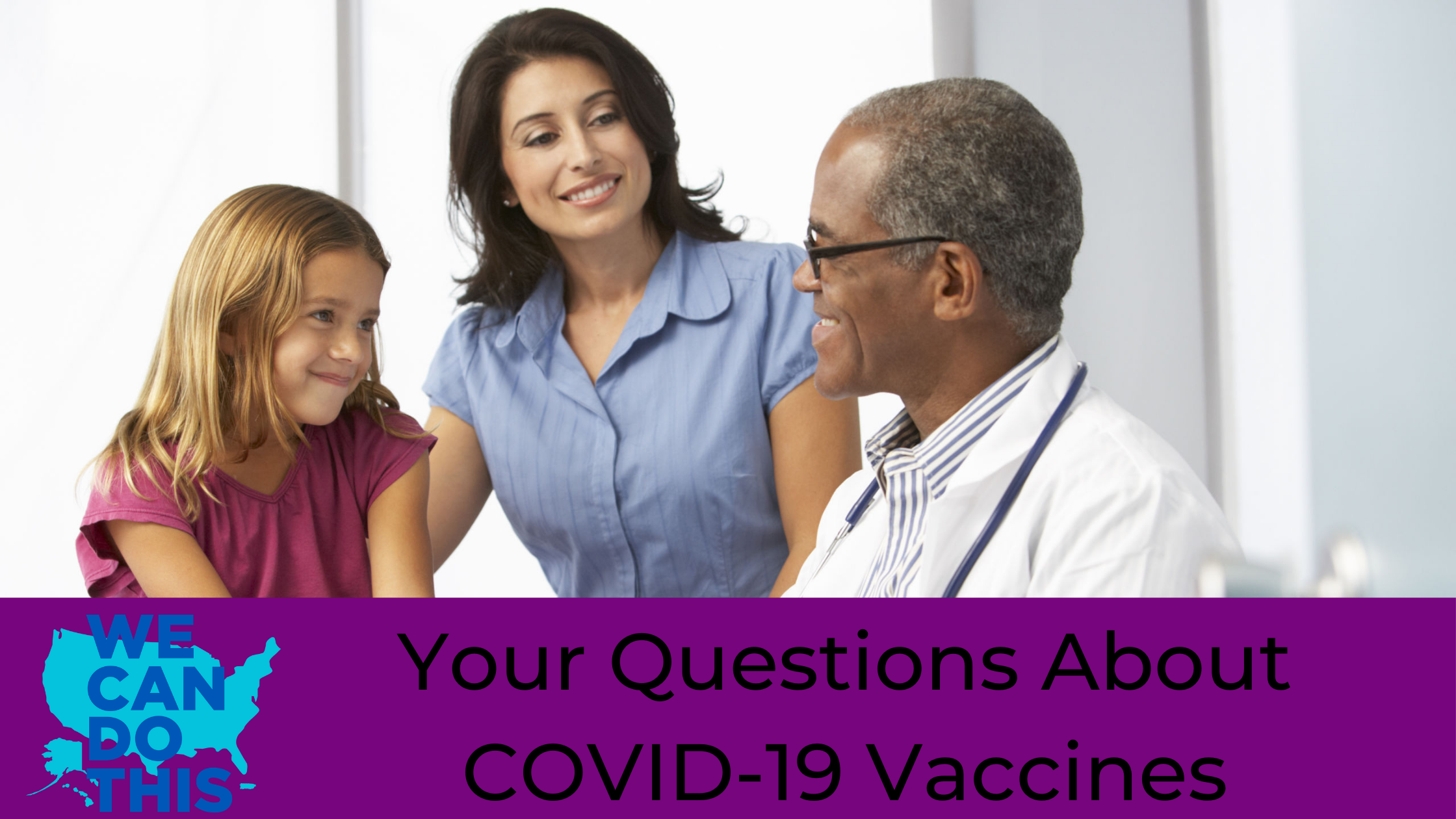This content was paid for by the U.S. Department of Health and Human Services. To find a COVID-19 vaccine near you, visit vaccines.gov; text your ZIP code to 438829 (GETVAX); or call 1-800-232-0233. Talk to your doctor if you have questions about COVID vaccines.
 We were grateful for the opportunity to sit down with Dr. Michael Brownlee of University of Iowa Health Care, to get YOUR questions answered about COVID vaccines. We know this information will be helpful to Iowa City families as they make their decisions about vaccinating their children.
We were grateful for the opportunity to sit down with Dr. Michael Brownlee of University of Iowa Health Care, to get YOUR questions answered about COVID vaccines. We know this information will be helpful to Iowa City families as they make their decisions about vaccinating their children.
________________________________________________________________________
 Michael Brownlee, PharmD, was named associate director and chief pharmacy officer of University of Iowa Hospitals & Clinics in November 2012. In addition, he is associate dean for clinical education and associate professor (clinical) at the UI College of Pharmacy.
Michael Brownlee, PharmD, was named associate director and chief pharmacy officer of University of Iowa Hospitals & Clinics in November 2012. In addition, he is associate dean for clinical education and associate professor (clinical) at the UI College of Pharmacy.
Brownlee is a native Iowan and received his PharmD degree with honors from the UI College of Pharmacy. He also holds a master’s degree in Health System Pharmacy Administration from the University of Kansas. He worked in UI Hospitals & Clinics Department of Pharmacy while a student and following receipt of his degree, held leadership positions at the University of Kansas Medical Center and the University of Missouri College of Pharmacy in Kansas City. Most recently, he served as director of the Department of Pharmacy Services at Oregon Health and Science University in Portland, Oregon, where he also was associate dean for clinical education at the Oregon State College of Pharmacy.
________________________________________________________________________
::INTERVIEW QUESTION & ANSWER RE-CAP:
We know that many parents still have questions about COVID vaccines for children. We polled our audience over the last few weeks and found that many questions overlap among families! Dr. Brownlee answered some of our readers’ most frequently asked audience questions.
Sara Meehan, ICM
Hello, Iowa City Moms. My name is Sara Meehan, and I am so glad you’re tuning in for this special interview today with Dr. Michael Brownlee, Chief Pharmacy Officer at University of Iowa Hospitals and Clinics. This video is recorded in partnership with the US Department of Health and Human Services. We know that many parents still have questions about COVID vaccines for children. We polled our audience the last few weeks – you probably saw that – and found out that many questions overlap, as we assumed they would. So Dr. Brownlee is going to be answering some of those questions – the most frequently asked audience questions today. Dr. Brownlee, thanks for being with us.
Dr. Brownlee
You bet, Sara. It’s great to be here. Thanks for having me.
Sara Meehan, ICM
Yeah. So the first question we have is why should I get my kids vaccinated if people who are vaccinated can still get COVID?
Dr. Brownlee
Yes, Sara. That’s a great question. It’s one we get a lot, and the vaccine is intended and was originally intended to prevent serious illness and hospitalization. So while you still can get COVID on top of having the vaccine before, it really prevents serious illness. Yeah. And we see that in kids too, that we want our kids to be vaccinated, those that are eligible to receive the vaccine, because we don’t want them to end up in the hospital or with serious illness, especially kids who have risk factors that predispose them to having serious outcomes from COVID. Right, and I’ve seen it’s very effective at helping prevent a serious illness related to COVID.
Sara Meehan, ICM
Kind of a follow up question to that one. Does my child need a booster shot? And are kids eligible for booster shots?
Dr. Brownlee
That’s another good question. As we’ve seen, over time, the vaccine efficacy started to wane, which required a booster to help get our antibody levels back up to where they needed to be. So, when it comes to kids, currently, the approved booster is for ages 12 to 17, only for the Pfizer vaccine. So, I want everyone to remember that too, that for the Moderna vaccine, it’s not approved for kids under the age of 18. The Pfizer vaccine is also approved for ages five to 11. But there is no booster approved for those age ranges just yet. So, it’s for kids 12 to 17. And the data was compelling to approve boosters in that age range to get the, like I said, to get the antibodies back up to where they needed to be to prevent serious illness.
Sara Meehan, ICM
Another question. This one a little longer, knowing that there’s generally an uptick in cases at the start of school year, should we be considering the timing of the vaccines or the boosters to be done in late summer, or to ensure that they have the best protection? Or that their protection is not waning at the start of the school year?
Dr. Brownlee
It’s another great, great question. I have my own kids that are in the age range of receiving vaccinations, and I have the exact same questions of what to do. Both my children are vaccinated, and I’m happy to say that they’re protected. But you know, it’s one of the things about timing, it’s hard to predict when the variants will come. And we’re really looking at the data to try and understand the vaccine and when…when it should be administered. And should it be more specific, but I think the right time is NOW to protect your children. Getting COVID is worse than any impact that the vaccine might have. So there’s significant negative consequences of actually getting COVID. And just getting it and then thinking that you have the right immunity is not really the right way to think about it because you don’t want to put your kids at risk. So our recommendation that we have here with our patients is that when you’re eligible, receive the vaccine as soon as you can. And then over time, if there are other specific boosters for the vaccine, you can get them at that time, but we don’t…recommend (to) time that out at all. And we’ll continue to look at the data and see what emerges related to timing. But right now it’s get it when you can.
Sara Meehan, ICM
Okay. Great. That’s very helpful. I think that’s about all the time we have for today, unfortunately. Dr. Brownlee, thank you so much for taking the time to answer these questions for our audience. And also, thank you to all the moms who submitted the questions for review. I wish we had time to get to all of them. I myself would love to hear more answers. I appreciate your willingness to engage in the conversation so that we can all make the best choices for our family. We will also be publishing a recap of this interview with Dr. Brownlee for everyone to reference on the website. Keep an eye out for that. In the meantime, please share this with any parent that might find that information helpful. We just hope that this expertise that we have here in our community can just be spread as far as we can possibly spread it. So thank you, Dr. Brownlee.
Dr. Brownlee
Thanks for your time and be safe out there everyone. Thank you.
________________________________________________________________________
::CATCH THE FULL INTERVIEW::
________________________________________________________________________
Thank you to all of YOU who submitted questions for review! We wish we had time to get to all of them and appreciate your willingness to engage in this conversation, so that we can all make the best choices for our families.










